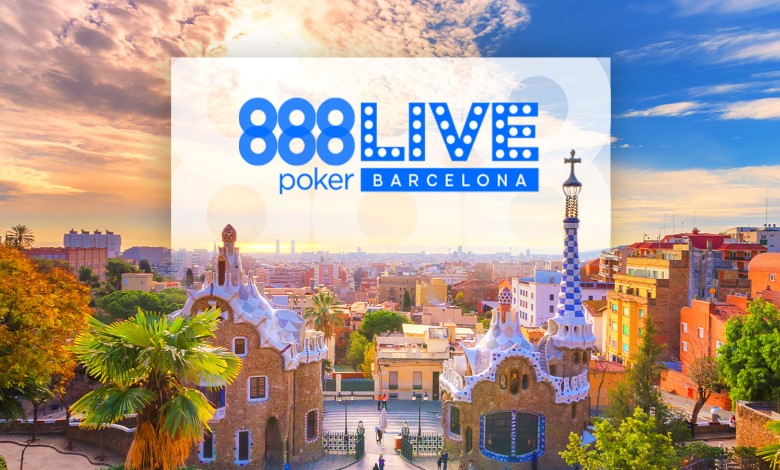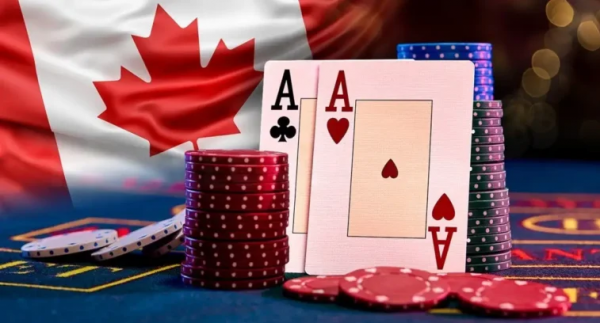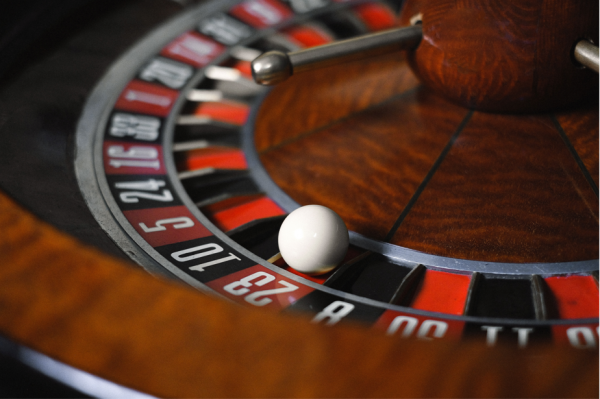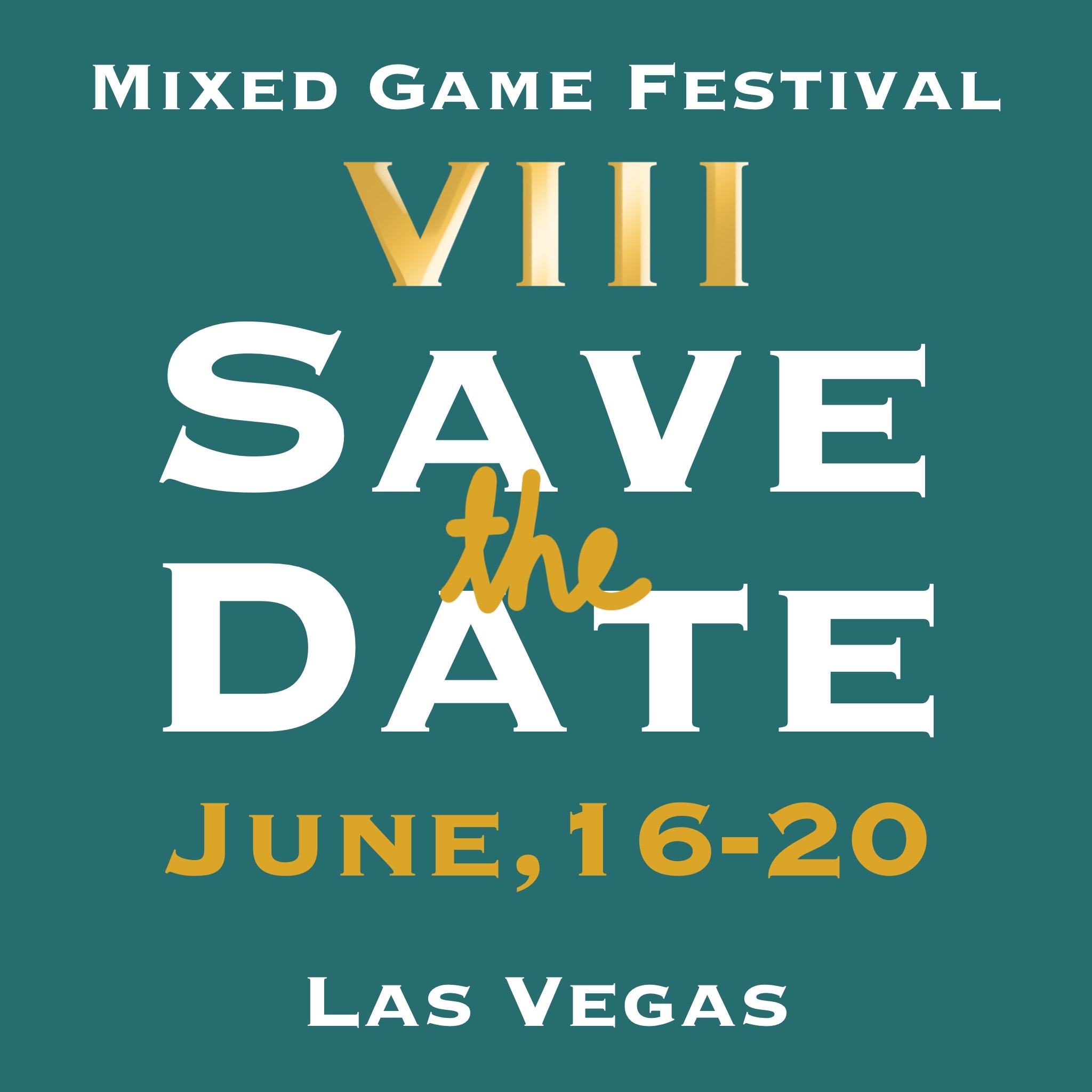As co-host of the Top Pair Home Game Poker Podcast, I have the privilege of interviewing some of the more interesting personalities in poker. Along with my co-host Bruce Briggs, I got to interview Jesse Sylvia on our latest episode (#273). Jesse’s is a familiar name to poker fans, especially if you’ve watched coverage of the 2012 WSOP Main Event, where he finished runner-up to Greg Merson. While Jesse’s been interviewed many times, we had the opportunity to dive deep into his life at and away from the tables.

Image credit: Joe Giron and World Poker Tour
Beyond Jesse proving to be a great interviewee with many interesting stories to tell, it was clear to me after close to an hour on the line with him that he’s genuinely just a great guy. He made Bruce and I feel as though he had all the time in the world to speak with us, was completely down-to-earth, and, plainly speaking, someone who I’d be happy to sit across a table from, regardless of whether we’d be playing poker.
I hope you enjoy listening to the interview as much as we enjoyed conducting it. Below, you’ll find the audio file for Episode 273 of the podcast, which includes our interview with Jesse starting at the 7:22-minute mark. You can also read the summarized transcript below.

Interview Transcript (Summarized)
Our guest today is Jesse Sylvia, poker pro and runner up in the 2012 Main Event. Jesse thanks for joining us today.
Thanks a lot for having me.
Most people are familiar with you following your runner-up performance in the Main Event but let’s go back to the beginning, how did you first get hooked on poker?
When I was 14 I watched Rounders with my dad. I always loved games like cribbage and gin rummy and I played them with both my parents. I thought that playing a card game where you could win money was a pretty amazing thing, but being 13-14 I had no idea how it worked. If you watch the movie, it’s all about looking at someone’s face and knowing what they have. So I played with my friends a couple of times and couldn’t figure it out! I just thought I was bad at poker!
When I was 17, Chris Moneymaker won the Main Event and I remember Lon McEachern and Norman Chad doing a really good job of showing the math behind what’s going on. Once you see the strategy and math, then that’s something I could hold onto and it seemed a lot more feasible.
Were you into math at school or just in addition to poker tells?
I was definitely better at math compared to other things. I was a slacker in high school and college, but I took math classes because it was the thing that came easiest to me. Math and logic are two things I grasp onto a lot. I like things that work in absolutes.
Our podcast is home game based and we’ve carved out that niche, so we always like to know about your home game background. Playing games with family might be one thing but did you have buddies you played with while you were growing up?
Between 17 and 18, I was a senior in high school and we played a lot of home games, although we just played poker in my friend’s garage. That was the only form of poker we knew. I loved it immediately. The first time I played I won, and then the next three times I lost but I came back completely excited thinking about hands and different spots. I didn’t know any of those terms, I was just trying to think of all the stuff I did right and wrong. The first time I won I won about $15. I was trying to work out how much I could buy if I won $15 every week.
Did you play at all while you were at college?
I found very quickly all the people in my freshman class who were interested in playing poker. We started little dorm room home games with people. We played a bit bigger, but a big win there would be $50-70. I was the only one in that group who was reading poker books and forums. I was never trying to be a professional, I was just so enthralled by this thing. For me it was a way to compete. I played a lot of sports in high school but I wasn’t the fastest or tallest person so some sports were out of question through sheer physical limitations. All of a sudden there’s poker where you can compete on a mental level.
So your foundation was live play and home games. People in your era their foundation is strictly online poker so you found a different way to build the foundations of your career.
The draw of poker is competing against real people. You’re playing for money which is kind of unique. Because of that you know that the other person is trying as hard as they can. There’s no excuses like “Oh I didn’t care.” Playing in person is important when you start out because you want to see your competition and observe the interactions to create the competitiveness in you.
So at some point you decided to turn pro, when was that?
I decided to become a pro when I finished college. When I was 22-and-a-half or something like that. I might have been 23. I was successful in college; I chopped the Sunday Million and some other dailies. I had won and saved a good amount of money. I was finishing school and moving back to Boston and it was the height of the recession.
I wanted to be a writer; I was going to find a job that made some money while I wrote. And there were no jobs. Boston is one of the most educated cities on the planet and I was asking myself why I should compete with people for a job when I have this other thing and it’s going really well and I’m making more money from it and I can choose my own schedule. I made the decision when I finished school that I was going to try and become a professional poker player and just see how it went. I was fortunate that I’d won and saved a decent amount of money and be able to pursue that without having to think about banking a certain amount per month. I had enough saved that I could have backup funds for myself.
When you made the WSOP final table in 2012 you had friends and housemates with whom you discussed poker with. So, between the ages of 22-26 you became friends with other professionals.
I was living in Las Vegas and I had my roommate and a bunch of friends who I discussed poker with. But in Boston I lived for a year and a half with a few of my best friends growing up and some of my friends who I’d met in the last few years. They’re amazing people but I had no one to talk poker with. After about a year, I felt like the people around me were getting better but I was staying the same. I mean I was getting a little bit better because I was reading and watching videos, but they were getting better a lot faster.
I found a really nice apartment for the WSOP that year and went on the high stakes forum on 2+2 and asked who wanted to stay with me for the week. I was thinking “Oh sweet I’ll have a great time but I’ll also learn from these guys and get better.” In the end, I found out that the guys I ended up staying with had the exact same plan! And one of these guys was Russell Thomas, who ended up getting fourth place when I got second, which was pretty crazy.
So did that change anything at the final table knowing that one of the other guys was your friend, or does that stuff stay on the rail?
Well when you’re on the table, you’re on the table. In the professional poker world we’re all competitive people. When people are hanging out playing ping-pong, people will make even really small prop-bets. So, when you sit down at the table you know everyone is trying their hardest to win, so you have to try your hardest to win. I know that if my friend bluffs me in a big pot, nothing is going to change in that way. I’m going to be a bit peeved that I let him bluff me but that’s about it.
You’ve travelled a lot and then you moved back to Vegas. Is that where you’re at now?
After the Series I moved to California with my girlfriend for about a year, and we missed our friends in Vegas. Every time we came back from travelling we’d sit in our apartment and be like “Let’s just go to Vegas!” and we’d crash on our friend’s couch. The next year we moved back and we’ve been here for four years.
Where do you enjoy playing most?
The Bellagio is kind of my home. When I was living in Vegas before final tabling the Main Event, I mostly played at the Bellagio. I was a cash game player at that point. When I made the decision to be a professional, I had just chopped the Sunday Million six months earlier, but that was a gigantic tournament and I knew I was never going to run that well again. So I decided to play cash games, and then two years later I final table the Main Event and I thought “Ok maybe you can run that good again.”
What can you tell us about your sponsorship with 888poker? What were some of the benefits and what were some of the drawbacks?
There weren’t many drawbacks in my mind. Partially because you have to do interviews and a photoshoot or something, but I really love that kind of thing and don’t mind all of that. We had to travel to specific tournaments, but they were tournaments I was excited to play. In my mind it was really a big positive, for the most part.
What do you miss the most?
There was really good camaraderie. Poker is a really ‘solo’ sport. It’s all on you. I mean you have your friends and you support each other, but when you always travel with that one group you become really close. When you’re hyper competitive and your friend gets a big score, you’re happy for them but there’s also this pang of jealousy that you feel as well. And the more time you spend with them, the less jealousy you feel because you end up getting closer to them and just feel excited for them. We had built this group of people and we were all really close.
How did you first meet Vanessa Selbst and become friends with her?
Vanessa and her wife are just really awesome people. I hired her to be my coach for the final table because at the time she was far and away the best at winning final tables. It doesn’t hurt that she comes in with the chip lead a lot, but she seemed extremely good at playing out final tables. Her results were really good. I think at the time she had won half of the final tables she had made, which is insane when there’s nine people at a final table. She also seemed to do things at final tables that were really good. We both had a really similar image at the time, and she dealt with that image really well.
She called me before the final table and said that we needed to do a lot of work. So when we went to the Five Diamond, I stayed at Vanessa’s in her guest bedroom with my girlfriend. During the day we would play tournaments and then when we both bust we’d go home and watch video or go over hands. We’d just be studying all the time. And we did that for at least a week. During that time we realized that we’re very similar people. We have similar interests and we like each other a lot and became really close friends.
Read our interview with Vanessa Selbst
It’s great that you can find these people to help you in your life.
Well, Russell is a great example. I was looking for people to talk to and I happened to get one of the most analytically intelligent people I’ve ever met in my life. That was a huge stroke of luck, but with Vanessa I knew who I was trying to hire and I knew they were incredibly smart. She ended up being even smarter than I expected.
And when I lived with Russell in 2010, I was telling him how he should play poker. You should have a job where how smart you are is compensated correctly. But he was like “This job is pretty steady and has great benefits.” I think actually in the first year that he worked for them he found a flaw in their algorithm which saved the company something in the region of $60m, and he got a two grand bonus for Christmas. And the minute we made the final table he quit his job.
Linda Johnson and Jan Fisher reached out to you in order to make this interview happen in the first place, how did you come to know them?
I was playing a mixed game at the WSOP and I met Jan while playing that. I’ve been trying to get better at the mixed games. They’re really fun because they’re limit. When you play no-limit you’re trying to stop people getting reads on you. But in limit even if they have a sick read on you they save just one bet, so everyone becomes more relaxed and they talk a bit more. The whole atmosphere is different.
At some point Jan said “you seem really nice and you should come and talk to our poker group.” They talk about all sorts of different poker-related stuff and they often have different speakers come in to talk to them. So I went in and told my story and answered some questions. And then they asked me to come back and talk them through some hand histories.
Do you do coaching?
I do some private coaching, mostly some 1-on-1 stuff. I did consider doing some group things, but it’s odd. You have to be careful with the information you’re giving out because you don’t know where that information is going to go. It’s always weird with a line that you walk when you discuss poker, because you always fear that you’re going to take something that somebody else told me. And I’m charging a price for that information. I kind of go back and forth between things like that. So when I do coaching I try to stick with stuff that I myself have figured out, but then sometimes you feel like you’re holding back some things.
That says a lot about your character.
Thanks. I think that was Vanessa. Before the final table we were talking in depth about some things and she said, “By the way, you can’t tell anyone about this thing!” And then a couple of times it came up and I almost discussed it and I had to stop myself. That made me full-on realize that there are some stuff that people give you that you don’t want to give out to the rest of the world.
Coaching and commentary are completely different things, but you’ve done some televised poker commentary. Is that something that you see yourself doing a little bit more of in the future?
I do really like doing commentary, it’s kind of a cool forum to project some of my thoughts. I had a lot of fun with it and I’ll do a bunch more of it in the future. Most of it has been people approaching me. I really like doing random livestream commentary. The first time I did it was at World Series Europe in 2012 and I showed up to do a bit and then a little bit more. I did a lot at the World Series, which was really cool because David Tuchman does a lot of those livestreams. He’s really good at his job and was really good at giving me direction. He was great at pinpointing the things that would make me better at speaking and analyzing.
When I had the audition for the $500k I prepared, and afterwards they said to me it looked like I prepared and said they thought I looked like I was going to take it seriously. And that was the first thing that I’d properly gone after that required homework, and somebody had noticed that. I did that for the $500k and the $300k and I would definitely do a lot more.
You won $821,811 at the WPT Borgata last month, and I saw that it was your first ever tournament win, is that right?
Yeah, it was weird because there were a lot of feelings at once. I’ve spent the last year of my life thinking about how I’ve never won a tournament, and obviously it’s hard to win a tournament because there’s a lot of people in them. I’ve had seconds and third, but I reached the point where I really wanted to win a tournament. It was weird because the way that the final table played out. I was shocked by all the stuff that happens. So there’s that as well as the immense desire to win the tournament. I thought there would just be excitement when I won but a lot of it was relief. I was really dialed in to actually finishing it off and winning.
I read this article about you and the last paragraph really showed your attitude towards being an ambassador for poker, and your views on making poker grow, and to me that really fits in with what we’re doing with this podcast.
It’s funny because I play a lot of cash games in Las Vegas, and the hoodie/headphone thing doesn’t really exist, especially at the high stakes. Everyone works hard to maintain a fun atmosphere. The talk is about golf or whatever sport is on television. People do a really good job of making a fun atmosphere, and then tournaments you see hoodies and scarves. That’s good, we’ve made some steps in the cash games and maybe we need to make some inroads in the tournaments.
There was always this limit game I think it was at the Bellagio, and in the no limit game it was a lot more serious and you’d look over at that table and the limit Hold’em game would be talking and joking and cracking up. They’re not as concerned about reads and things like that.
Thanks for spending the time with us Jesse, I know you’re getting ready to head out on the road. Anything you want to let our listeners know?
I feel like the last point I made was the most important one. Try to keep it enjoyable and always enjoy when you play!







Comments